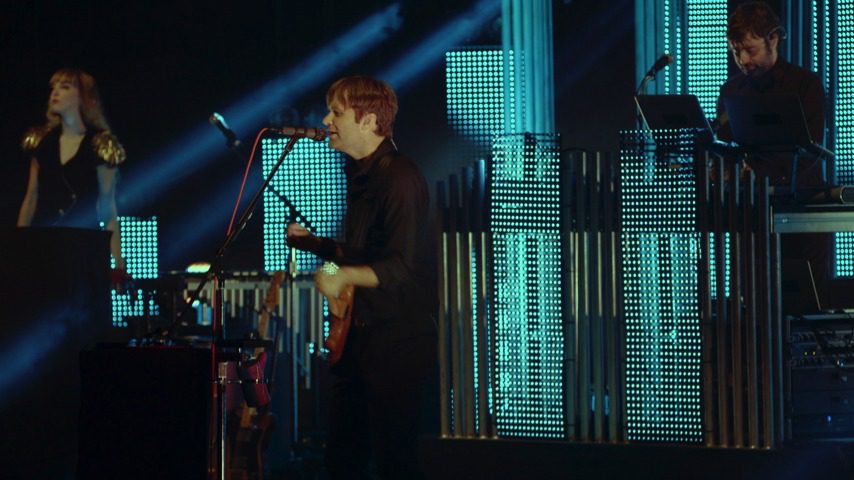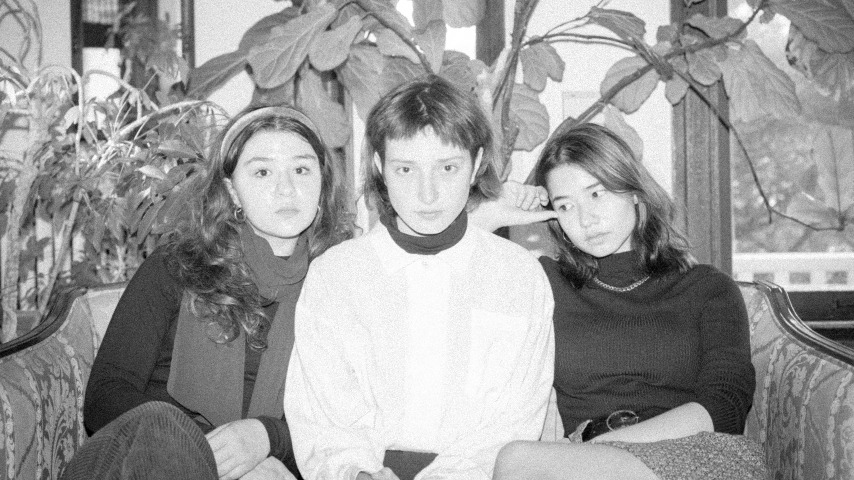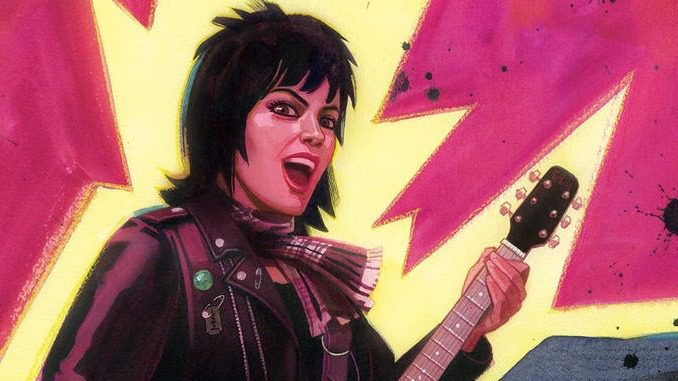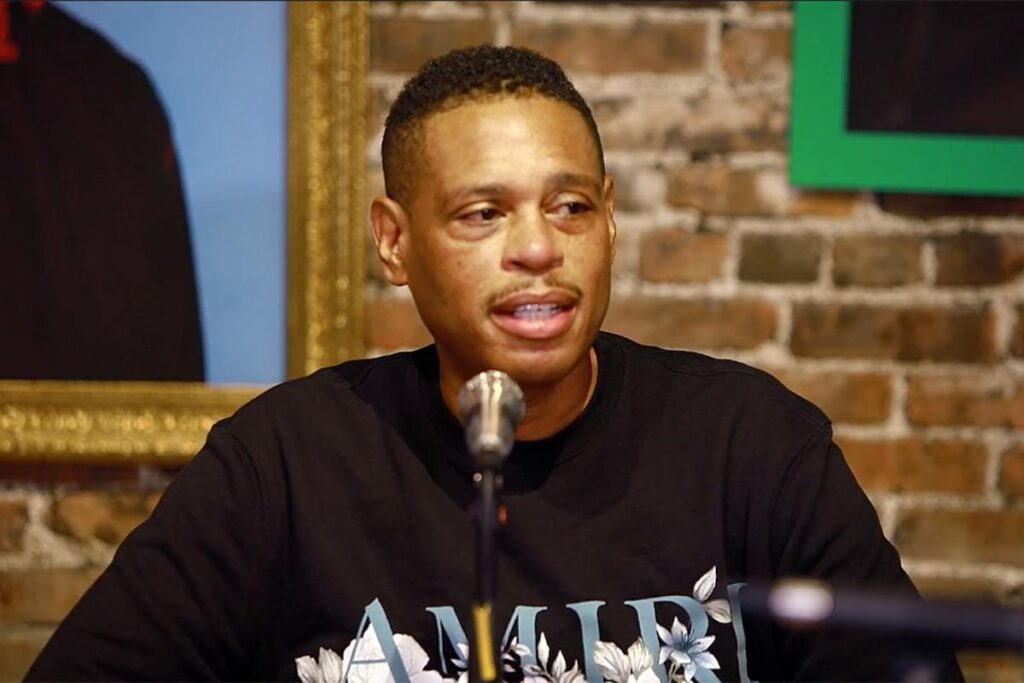The infectious, overwhelming cheers when your favorite band walks onstage. The warm and inviting first instrumental sounds that pulsate from the venue’s speakers, rattling your chest. The first lyrics you can’t help but sing along with. The first instrumental breakdown, when your arms impulsively shoot skyward and your hips start moving, and you stop caring about how much outrageously expensive shitty beer you’re spilling on your shoes.
You’re dancing. In a crowd. With thousands of people you don’t know, outside of your friends next to you. You don’t care who everyone around you has been in contact with. Or who may have coughed next to them. Or if they’re even wearing a mask. These aren’t even thoughts that enter your brain—all you care about is enjoying the music being played in front of you and taking in the atmosphere.
It’s. Really. Hard. Listening. To. A. Live. Album. Right. Now.
Like dusting off some old album from your parents’ vinyl collection or watching a black-and-white film from long ago, listening to a live record or watching a concert video feels like revisiting a completely foreign time, like a fading dream. How could a mass gathering like this even exist now, free of all the anxiety that attending it might quite literally kill you?
The title of The Postal Service’s new live album, Everything Will Change, feels like a cheeky nod to our new reality, even if that name comes from a lyric from a song released in 2003 and a documentary concert film from 2014, which was remixed and remastered for release in 2020. It’s the refrain from the end of “Brand New Colony,” the fan favorite that closed each set on the band’s 2013 reunion tour celebrating the 10-year anniversary of Give Up, their debut and only album to date, a record that largely blew up in popularity after the group went their separate ways, going platinum nine years after it hit record stores and music piracy sites. Hell, Everything Will Change comes from a show at a two-night sold-out residency at Berkeley’s famed Greek Theatre, a gorgeous 8,500-person amphitheater. Their only other previous shows in the Bay Area were at San Francisco’s Bottom of the Hill in May 2003—a 350 capacity room—and the Los Gatos Outhouse, a teen center that closed almost a decade ago.
I’d be remiss not to mention that I was actually at the show that became Everything Will Change. I had just graduated from college two months before, on the very stage that Ben Gibbard, Jimmy Tamborello, Jenny Lewis and Laura Burhenn ran through their then-10-year-old hits on. Two months later, I was on a one-way flight to Washington, D.C., where my life became the lyrics to “The District Sleeps Alone Tonight,” the song that The Postal Service opened their set with, a place where I never felt like more than just a visitor. I had no idea where my life would take me in that precarious time as a still-unemployed recent college graduate, but for a couple hours that very drunk, synth-pop-filled night, all those anxieties and uncertainties went away.
Two other parts of that night showed how much everything would change: First, Big Freedia, still at that point very much a cult artist who hadn’t yet become massively popular outside of New Orleans, and whose bounce music hadn’t yet influenced one of Drake’s best and biggest songs, opened the show. Twerking wasn’t yet a household word, and almost exactly a month before Miley Cyrus shocked middle America with her dancing at the VMAs, Gibbard and co. joined the Queen of Bounce at the end of her set to twerk onstage. It was hilarious.
Second, inspired by the show, Mark Kozelek wrote “Ben’s My Friend,” which ended up being the last song on his then-widely celebrated Benji, a track that described the night as more of a hassle than enjoyable: “The other night I went and saw The Postal Service / Ben’s my friend, but getting there was the worst / Trying to park and getting up the hill / And find a spot amongst the drunk kids staring at their cells.” The song got Pitchfork’s “Best New Track” label, which, at the time, called the single “one of the funniest, warmest, and most revealing songs ever written about male friendship, especially the complications that arise in relationships where one guy’s more successful.” Kozelek’s Sun Kil Moon was at a career-long peak of critical acclaim at the time. Years later, he became one of the most hated artists in all of indie rock, accused of sexual misconduct by three women and misogynistically insulting one of the world’s leading music journalists. Everything did change.
So with all of this in the rear-view mirror, it’s fascinating to rewind the clock seven years to listen to Everything Will Change. It sounds every bit as great as I remembered it: the warm synths of “The District Sleeps Alone Tonight,” the pulsating beats of “Clark Gable,” the glitchy bounce of “Brand New Colony.” Even the easily forgotten b-sides from 2013’s deluxe version of Give Up make their case to be revisited, especially the anxious “Turn Around” and the gorgeous “There’s Never Enough Time.” The band humanizes the stuttering electronics from “(This Is) The Dream of Evan and Chan,” a pre-Postal Service collaboration between Gibbard and Tamborello under the latter’s moniker Dntel, adding late-era Death Cab for Cutie sheen and glimmering synth to “Our Secret” by Beat Happening, a group Gibbard called “the greatest band in the world” that night.
It’s a tight set that gets a lot of the hits out of the way early, opening with the one-two-three punch of “The District Sleeps Alone Tonight,” “We Will Become Silhouettes” and “Sleeping In.” This show was months into a lengthy world tour and it shows: They were a well-oiled machine at this point.
“Natural Anthem,” which closed out the first set, may be the highlight here. The track’s punishing and harsh electronics, propelled by drum ’n’ bass percussion, absolutely explodes in the live setting. Complete with Lewis’ wailing vocals and a chaotic light show that recalls Radiohead performing “Idioteque,” the track is a harsh counterpoint to its lighter setlist predecessor “Such Great Heights,” but plays as the exact sort of song you desperately miss totally losing your mind to in the pit.
I was too young to appreciate, or even be aware, of Give Up when it was released in 2003, two-and-a-half weeks after my 12th birthday. Through various means over the next decade, I heard the album piece by piece—(ironically) a UPS commercial here, a friend’s open mic performance of “Nothing Better” there, lots of file sharing in between—and it slowly became one of my favorite records, one of those few releases I’m able to revisit at both my highest highs and lowest lows. For Everything Will Change, I can confidently do my best James Murphy impression and say, “I was there,” even if I was a much different person in a much different place, in a world that looks nothing like it does upon the live album’s release during a deadly pandemic.
Live music is meant to be ephemeral, something that’s experienced only by however many people were in that room that night. The songs may be the same—and maybe even the setlists—on every night of that tour, but no two performances are ever 100% alike. It’s not often you’re able to revisit your past in this sort of stunning detail, particularly years after the fact.
There’s a lot I wish I could have told myself that night, and maybe I was one of the people Gibbard motioned to when, before launching into “Nothing Better,” he asked, “Who here has had their heart taken out of their chest and stomped on? This guy right here?” I don’t think I was heartbroken that night, but I sure was going through a lot of uncertainty concerning what my future would look like. I remember making a point to try to live in the moment as much as I could at that show, knowing full well that it could be the last time I’d get to catch a show at my favorite music venue in the world, located just blocks from where I’d lived for the past four years. Listening to Everything Will Change, one of the few instances where live music’s ephemerality became permanent for me, I can still see myself dancing in the pit during “We Will Become Silhouettes,” singing along to “The District Sleeps Alone Tonight” and losing my shit during “Natural Anthem.”
But even for those who weren’t at that show or that reunion tour, there’s lots to love throughout the album—if you’re listening to Everything Will Change, you surely have some sort of attachment to these songs already. In 2013, they were all songs you couldn’t believe you were getting to hear live after all those years away. Who knows if we’ll get to experience them live again (or any other album, for that matter, in a post-pandemic world), but the thrill that live versions of these songs even exist at all is something to celebrate, something to take you back to your own first experiences with records like Give Up. And in a year that’s taken so much away from all of us, it’s a much-needed trip to revisit our past selves once again, a feeling that’s shockingly emotional and welcome in such a dark time.
Steven Edelstone is the former album reviews editor at Paste and has written for the New York Times, Rolling Stone, the Village Voice and more. All he wants is to get a shot and beer combo once this all blows over. You can follow him on Twitter.




